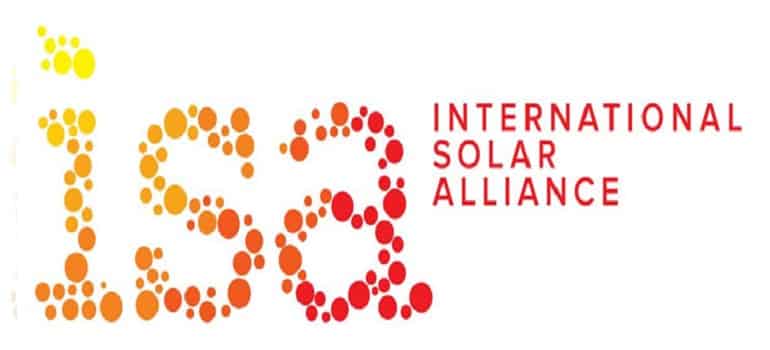
International Solar Alliance (ISA) will become a treaty-based international intergovernmental organisation or a legal entity on December 6, 2017.
The ISA was jointly launched, on November 30, 2015, by Prime Minister Narendra Modi and the then-French President Francois Hollande on the side lines of the UNFCCC Conference of Parties 21 (CoP21) in Paris.
The ISA is a treaty-based alliance of 121 prospective solar-rich member nations situated fully or partially between the tropics, and it aims at accelerating development and deployment of solar energy globally.
“The ISA will become a treaty-based international intergovernmental organisation on December 6, 2017,” Power and New & Renewable Energy Minister R K Singh told .
Singh said, “It will be a major international body headquartered in India. As many as 45 countries had already signed the ISA treaty and 15 have ratified it till November 30, 2017, and many more are set to join”.
The minister was of the view that the ISA is important for the country’s strategic autonomy and energy security in view of India’s dependence on imports of fossil fuels.
The ISA has been conceived as an action-oriented organisation.
It brings together countries with rich solar potential to aggregate demand for solar energy globally, thereby reducing prices, facilitating the deployment of existing solar technologies at scale, promoting collaborative solar R&D and capacity and achieving universal energy access and energy security of the present and future generations.
ALSO READ: Gujarat, Tamil Nadu powerlooms harvested max benefits of solar energy scheme: Official
The Paris declaration on the ISA states that countries share collective ambition to undertake innovative and concerted efforts for reducing the cost of finance and technology for immediate deployment of competitive solar generation.
It also seeks to mobilise more than USD 1,000 billion of investments needed by 2030 for the massive deployment of affordable solar energy and to pave the way for future solar generation, storage and good technologies for countries individual needs.
ALSO READ: India can easily achieve 200 GW of renewable capacity by 2022: R K Singh
India hopes that, in the spirit of affirmative action, developed countries will earmark a percentage of Overseas Development Assistance (ODA) towards solar energy projects in developing countries.
Source: PTI

